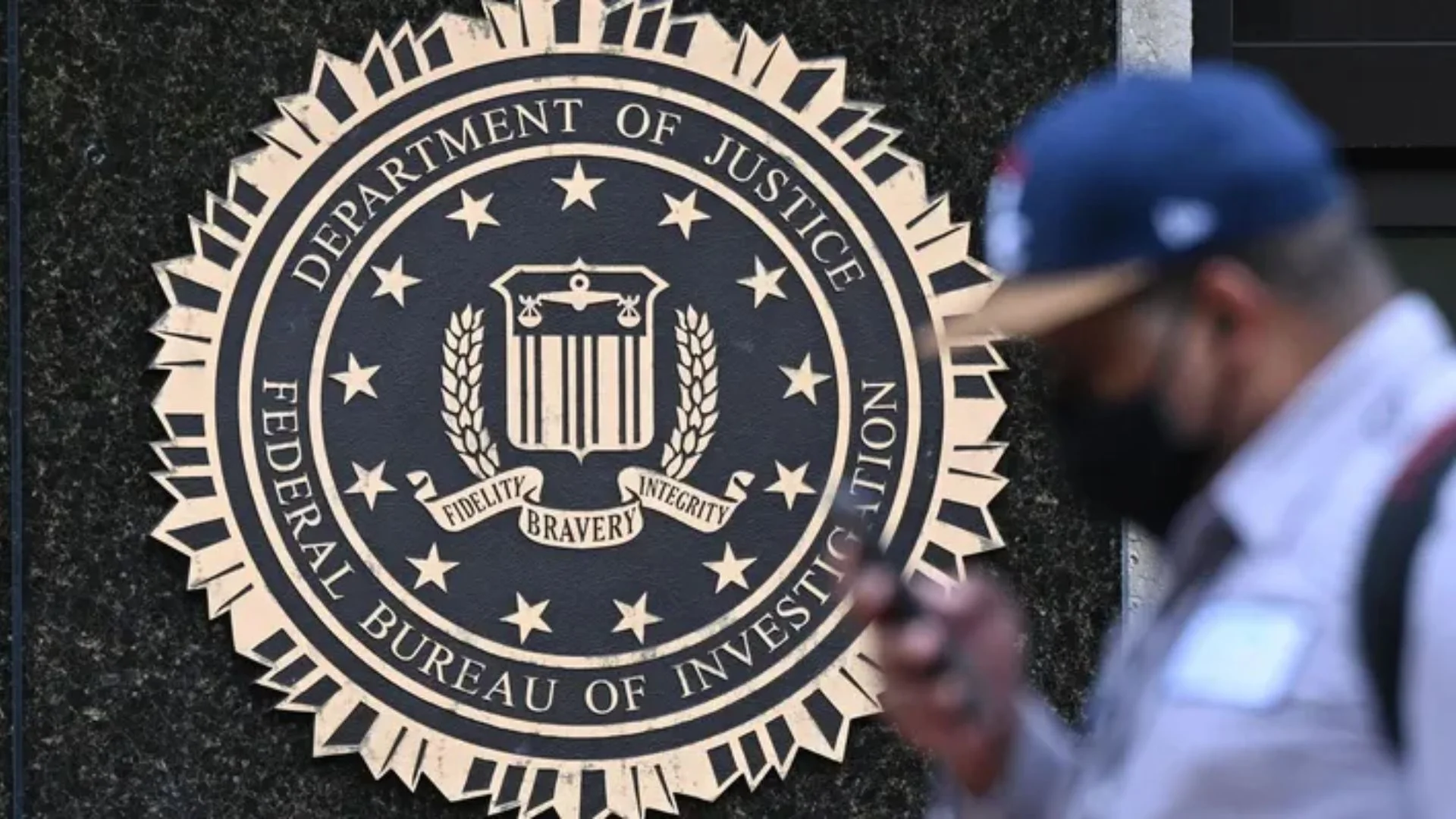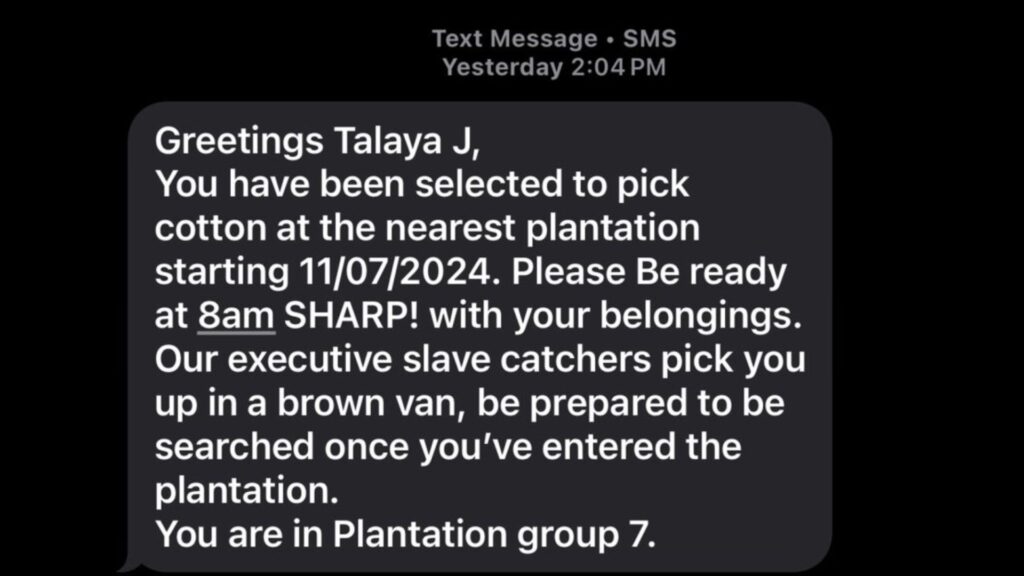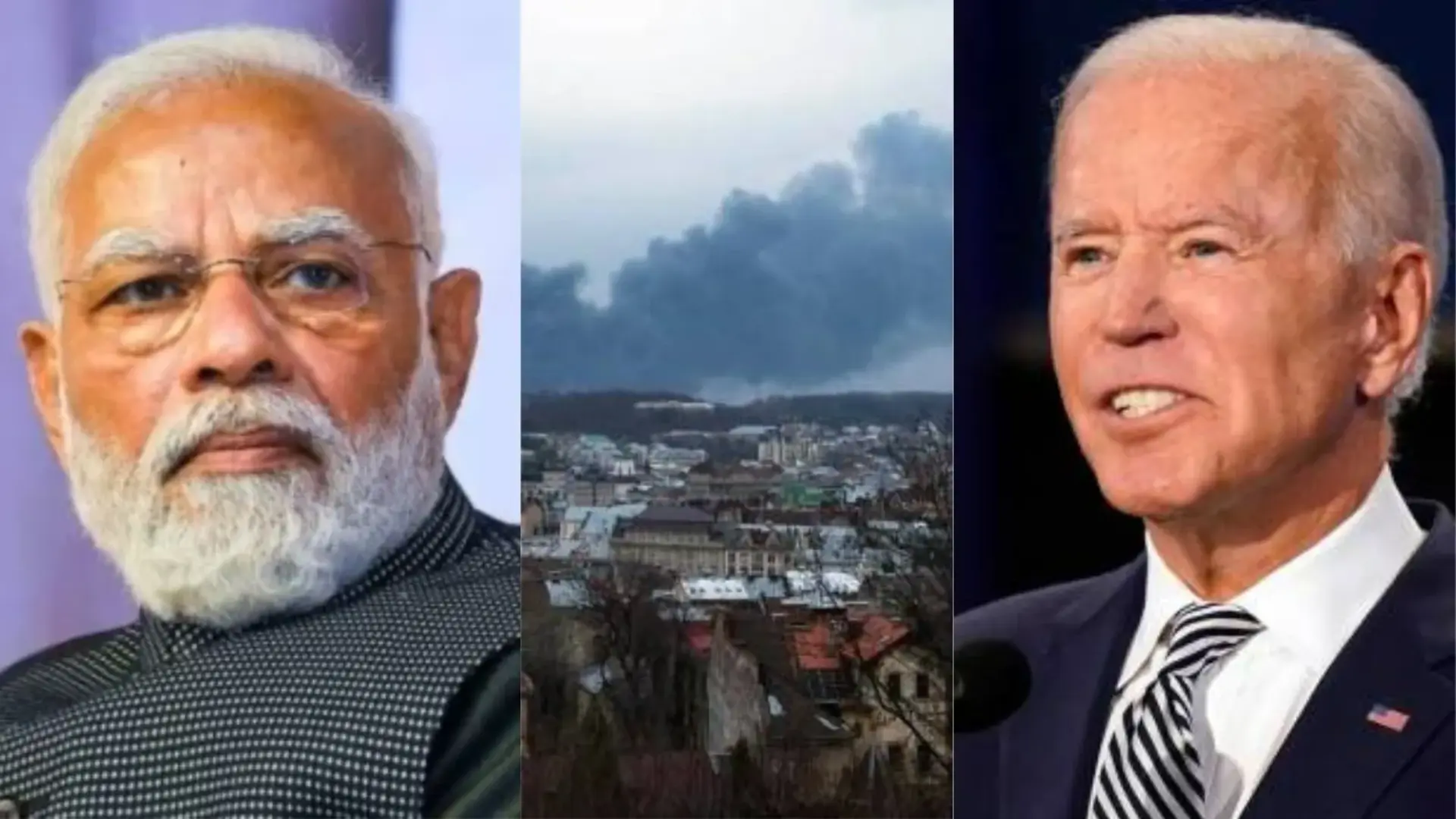
In the hours following Donald Trump’s election victory, Black individuals across the United States reported receiving racist and offensive text messages. The messages, some signed by “a Trump supporter,” informed recipients that they had been “selected” to pick cotton and instructed them to report to “the nearest plantation.” These texts, which varied in detail but shared the same disturbing message, were sent to Black adults and students in numerous states, including Alabama, South Carolina, Georgia, New York, New Jersey, Nevada, and Washington, DC.
The texts were not limited to adults; high school students, including those from Massachusetts, New York, and several historically Black colleges and universities (HBCUs), such as Alabama State University, also received these disturbing messages. Even middle school students in Pennsylvania were affected, according to reports. Social media posts indicated the messages were widespread, though the full list of recipients remains unclear.

The FBI, along with state attorneys general, has opened an investigation into the messages. A spokesperson for the FBI confirmed that the agency is in contact with the Justice Department and other federal authorities regarding the offensive texts.
In response to the texts, the NAACP condemned the act as part of a troubling rise in racist rhetoric. NAACP President Derrick Johnson linked the messages to a broader societal issue, suggesting that the election of Trump, whom he accused of encouraging hate, had emboldened racist groups across the nation. He called the texts a threat to Black Americans’ freedom and condemned their reference to slavery as a “legacy of evil.”
“The unfortunate reality of electing a President who historically has embraced, and at times encouraged hate, is unfolding before our eyes,” Johnson said in a statement. He continued, emphasizing that such hate has no place in a democracy and underscoring the deeply disturbing nature of referencing slavery in 2024.
The Trump campaign swiftly distanced itself from the messages, with campaign spokesperson Brian Hughes stating that if the origin of the texts could be identified, legal action would be pursued. “President Trump built a diverse and broad coalition of support, with voters of all races and backgrounds,” Hughes said, adding that Trump’s victory was a mandate for change and a second term that would benefit all Americans.
As authorities continue their investigation, the messages remain a stark reminder of the ongoing challenges Black Americans face in the wake of divisive political rhetoric.















